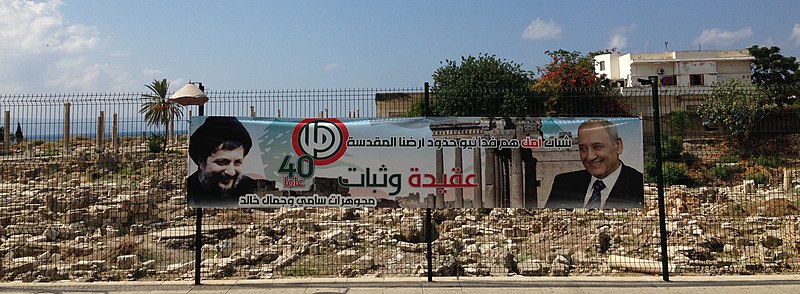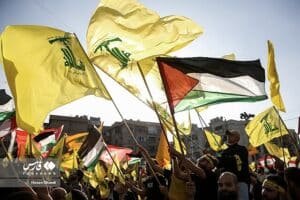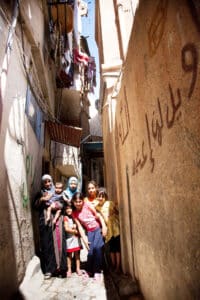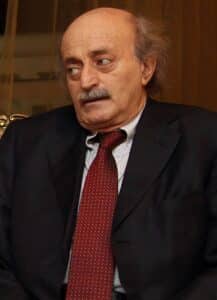A banner in the Lebanese city of Tyre (Sour), commemorating the 40th anniversary of the disappearance of Shia leader Musa al-Sadr (left), also depicting Nabih Berri (right), leader of the Amal movement (WikiMedia Commons)
The newly inaugurated Lebanese Parliament – chosen on May 15th – has re-elected 84-year-old Nabih Berri as parliament speaker. Berri is re-elected for a seventh term as speaker with the smallest margin, 65 out of 128 votes. Berri’s re-election, a long-time ally of Hezbollah, does not bode well for those who had hoped that recent elections could provide an overhaul of the Lebanese political status quo.
Berri, a political veteran
Nabih Berri is the leader of Al-Amal, a major Shiite ally of Hezbollah. A former warlord, Berri became politician after the Lebanese civil war ended in 1990. He is a household figure in Lebanese politics, that is characterized by state capture through political leaders that represent a certain ethno-religious constituency. Lebanon’s sectarian quota system has led to enormous levels of corruption, waste of public funds and the impoverishment of the Lebanese people. Financial policies of Lebanese governments in the 2010s have devastated the national currency, leading to 80% of Lebanese now living under the poverty line.
Opposition lawmakers protest
Some changes did occur. Berri’s re-election has never been by such a small margin. In 2018, he secured 98 votes compared to this year’s 65, indicating a major shift now anti-Hezbollah parties have won in the recent election. Opposition lawmakers, related to the 2019 protest movement, walked to Parliament from the Beirut port – in honor of the hundreds of victims of the 2020 Beirut Blast. Officials from the Amal party have been under investigation for bearing responsibility for the blast. Also, opposition lawmakers wrote ‘Lokman Slim’ on the ballots, referring to a prominent Hezbollah critic who was assassinated in 2021.
Upcoming months
Berri’s re-election was expected and held within constitutional deadlines. The real political struggle will be in the upcoming months, as intense political horse-trading is expected towards the election of a new President must be chosen in this year’s fall. Michel Aoun, the current President and Hezbollah ally could be ousted as his FPM-Amal-Hezbollah bloc no longer has a majority in parliament. Other blocs also do not have a majority, and analysts have warned for a protracted political deadlock, of which Lebanon has seen many already in the past decade. If so, the Lebanese people will continue to suffer, as swift political decision-making will be crucial to tackle the country’s multiple crises in the upcoming years.
Sources: Al-Monitor Al Jazeera France24
Photo: WikiMedia Commons



